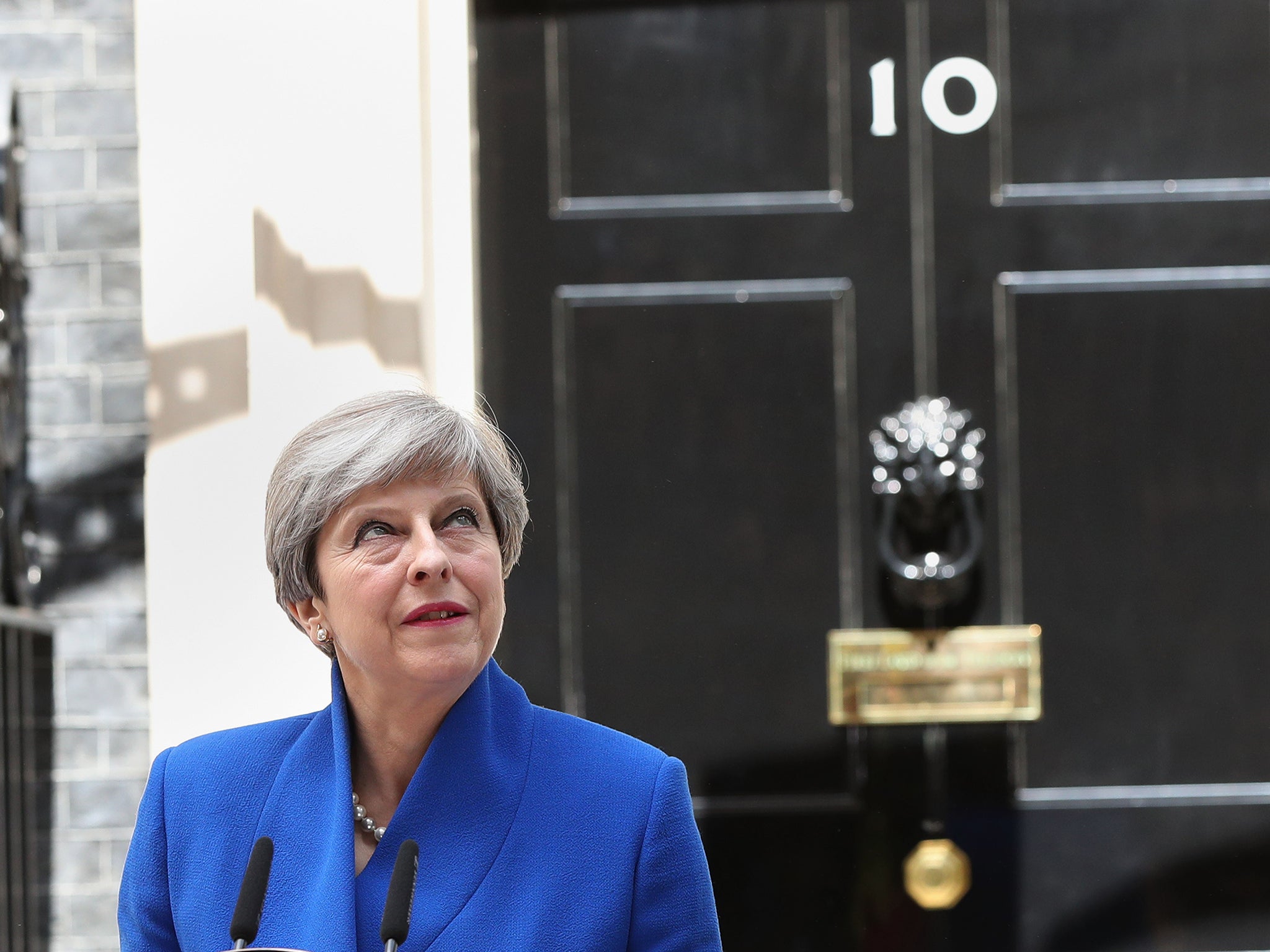For the sake of peace, Theresa May cannot maintain her deal with the DUP
The deal sacrifices the Irish peace process for the sake of the Prime Minister clinging on to her power, and that is dishonourable and dangerous because it puts lives at risk via a return to terror

Your support helps us to tell the story
From reproductive rights to climate change to Big Tech, The Independent is on the ground when the story is developing. Whether it's investigating the financials of Elon Musk's pro-Trump PAC or producing our latest documentary, 'The A Word', which shines a light on the American women fighting for reproductive rights, we know how important it is to parse out the facts from the messaging.
At such a critical moment in US history, we need reporters on the ground. Your donation allows us to keep sending journalists to speak to both sides of the story.
The Independent is trusted by Americans across the entire political spectrum. And unlike many other quality news outlets, we choose not to lock Americans out of our reporting and analysis with paywalls. We believe quality journalism should be available to everyone, paid for by those who can afford it.
Your support makes all the difference.It is difficult to know precisely the Prime Minister’s state of mind, only a few days after her party’s worst electoral setback in two decades. She has lost virtually all her political capital, the respect of the electorate and many in her own party, and her two closest political comrades.
She may or may not be a dead woman walking, but she certainly gives the impression of someone strongly in denial. Not that she would, but if she were to call a press conference to attempt to answer the many questions now facing her she might well declare that “nothing has changed”. She might even believe it.
Her bizarre attempt to come to some sort of agreement with the Democratic Unionists of Northern Ireland, hitherto ignored but now “friends and allies”, suggests that she wants to be able to say that she commands a majority in the House of Commons for a full five-year term. So in that sense she could argue that she had a majority before the election, and that she still has, and therefore, the election hasn’t changed that fact. Nothing has changed, you might say.
Could the deal last? Theresa May could well look back at minority administrations led by John Major, James Callaghan, Harold Wilson and others over the years. The lesson of those, for May, is that such governments, with or without minority party support, can survive for surprisingly long periods, if exhausting for parliamentarians. The lesson of those past examples for her party and the country is that they rarely got anything done, and certainly not on the scale of the Brexit negotiations awaiting the nation. To borrow a phrase worn smooth and meaningless through overuse, minority administrations are neither strong nor stable. Coalitions, such as the Cameron-Clegg version, can be strong and stable, but the DUP are not appropriate potential partners on a variety of grounds.
There are well known problems with forming a pact with a Northern Irish party. It is wrong for the British Government to be beholden to one faction: they cannot act as honest brokers or retain the confidence of nationalists and republicans – nor the other unionist parties. This deal sacrifices the Irish peace process for the sake of May clinging on to her power, and that is dishonourable and dangerous because it puts lives at risk via a return to terror. It means Ulster is set to receives disproportionate attention and funding, compared to, say, Lancashire or Suffolk: it is the mirror image of the Miliband/Corbyn in the SNP’s pocket the Conservatives suggested would be such a constitutional outrage. For the sake of the country, they should ditch the deal as soon as possible. It cannot last or be made to last until 2022.
For now, May and the DUP are all the hope the Conservatives have got. There seems an emerging consensus in the party that in the short run May has to remain in place, albeit as something of a prisoner, for the sake of, well, stability. That view is likely to be endorsed by the 1922 Committee of all Tory backbenchers who she faces this week, and her Cabinet, who keep their private views for dissemination via the media. There is no obvious successor to her yet, or at least one that would improve the party’s standing with the voters. It will take time for someone to emerge and for the policies to be revised. The forthcoming Queen’s Speech is likely to be a timid affair and some of the more radical plans in the May manifesto will be ditched by her own party or under a DUP veto, and should win the support of Labour and other parties. The Conservatives are frightened of another election. They, and we, are thus lumbered with May.
But the longer things drift on the more chaotic Britain’s government will become, under pressure of events. Is it really tolerable that the only party to be consulted on Brexit is the 10-strong DUP? Is it really feasible that the Irish peace process can collapse for years with no adverse consequences? Is it really right that a leader plainly rejected by the country and never actually elected by her own party can carry on indefinitely? Is it easy to imagine her rivals will keep quiet and get on with the job for five long rumbustuous years?
Even the most tribal Tories must have their doubts. The next election is months not years away.
The voters made plain last week they did not want business as usual. They realise even if their nominal leader does not, that everything is changed now. Change is coming.
Join our commenting forum
Join thought-provoking conversations, follow other Independent readers and see their replies
Comments